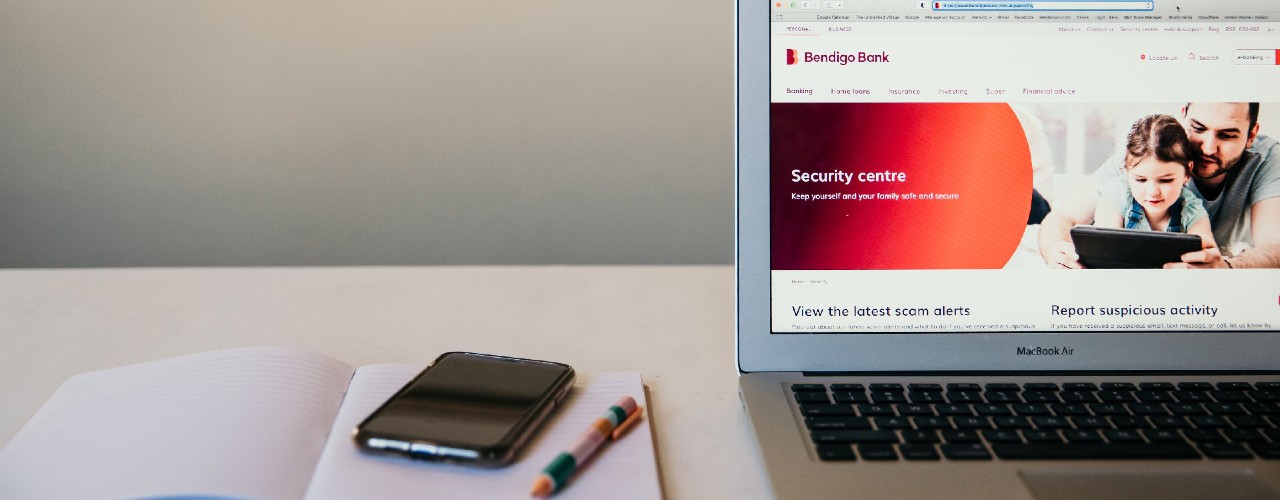For many of us, banking online is part of our daily lives. But for older and/or vulnerable Australians, the idea of handling financial matters on the internet can be daunting. Banking online is generally very secure and can offer a whole host of benefits, from financial autonomy to accessibility. Here’s how you can support your loved ones to bank online confidently, safely and securely.
The benefits of online banking
- Accessibility. Online banking is available anywhere you have an internet connection. This reduces the hassle of travelling to your local branch, which is particularly helpful for those living rurally, or those with less physical mobility.
- Autonomy. Being able to bank online gives more people the autonomy to look after their own finances independently for longer – helping lower the risk of elder abuse by reducing the need to share sensitive banking tasks with others.
- Support. You can still get support when banking online – in fact, it might be even easier! From troubleshooting to account management, there’s plenty of information available, and you can even use live chat for more specific questions.
- Increased visibility. Being able to engage with your finances more often makes it easier to spot scams or unusual activity.
Supporting loved ones to bank online
Helping loved ones feel confident enough to bank online is important. Everyone learns differently, so supporting them at a pace that feels right for them is key. Here are our top tips on encouraging digital engagement and inclusion.
Keep it simple and jargon-free
Digital terminology and acronyms are commonplace in modern life, but they can be confusing. It’s important to be conscious of jargon or assumed knowledge when teaching loved ones how to use online banking. Take it at a slow, manageable pace, and use simple, clear language or analogies to explain how digital functions work.
Demonstrate how to get help
Improving loved ones’ skills with online banking can help them build their digital confidence, but make sure they know how to reach out for help. Explaining how bank customer service lines helplines , support functions and live chat work , and documenting the steps to take to get help, can ensure they know how to let us know if there’s a problem.
Bendigo Bank’s digital hub has guides and resources to help our customers feel more confident to use online services. We also run in-person banking safely online sessions at local branches, rotary clubs, football clubs, fishing clubs and at other community locations.
Openly discuss scams and security
While security risks can discourage people from banking online, the reality is, it's very secure. Nonetheless, just like doing things offline, there’s a potential risk of scams. Openly discussing scam risks with your loved ones can help them know what to look out for. Plus, you create a safe environment for them to ask your advice if something doesn’t feel right. Work through security protocols like changing passwords and passphrases, setting up multi factor authentication, and spotting red flags in fraudulent emails and SMS text messages for added protection.
Older Australians over the age of 65 are most at risk of becoming the victim of a scam. Fostering scam literacy with everyone in your life can prevent scam losses. Make sure your loved ones know how to spot scam red flags, how to protect themselves from scams, how to report a scam, and what to do if they think they’ve been scammed.
It might help to use our handy catchphrase: stop, think, and protect:
- Stop – before you make a quick decision, stop. Could this be a scam? Scammers benefit from rushed decision making.
- Think – what are the red flags here? Why have I been contacted? How can I verify this is legitimate?
- Protect – act quickly if something feels wrong. Contact your bank for support if you’ve transferred funds. Report the scam to Scamwatch.
What to do if you think you or a loved one has been scammed
If you notice unusual activity visit www.bendigobank.com.au/security to report it and get support.
If you think a loved one has transferred money to a scammer, ask them to call us immediately on 1300 236 344.
If they have provided personal information, particularly photo identity documents like passports and driver’s licences, encourage them to contact IDCARE to take steps to protect their identity.






